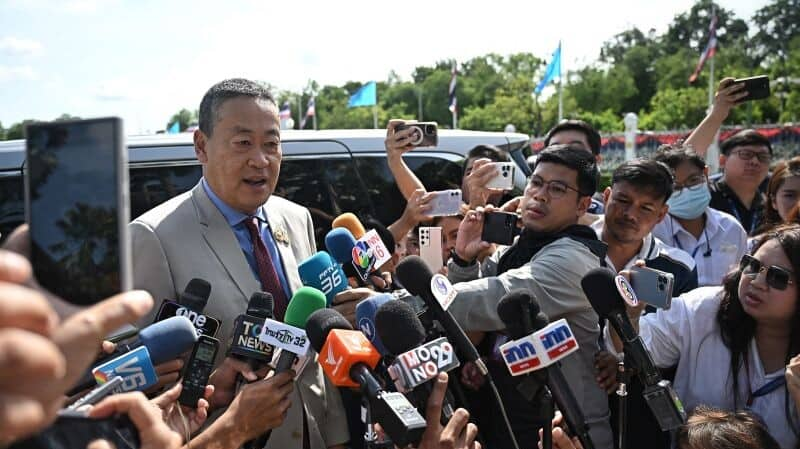
Thai PM Srettha Thavisin removed from office in shock ruling
What's the story
A court in Thailand has removed Prime Minister Srettha Thavisin from office over an ethical violation. The Constitutional Court in Bangkok ruled that Thavisin violated the constitution by appointing a lawyer with a criminal record to his Cabinet. The court found Thavisin, a real estate magnate and relative political newcomer, guilty of breaching ethics rules. Five out of nine judges voted for Thavisin's dismissal, stating that he knowingly appointed an individual who "seriously lacked moral integrity."
Political impact
Pichit was imprisoned for six months in 2008
In April, Thavisin reshuffled his Cabinet and nominated Pichit Chuenban as a minister of the Prime Minister's Office. Pichit was imprisoned for six months in 2008 on contempt of court charges for allegedly attempting to bribe a judge with 2 million baht ($55,000) in cash in a grocery bag over a case involving former Prime Minister Thaksin Shinawatra. He resigned from his position weeks after being appointed when the controversy surrounding the incident resurfaced.
Political journey
Thavisin's rise and fall in Thai politics
Thavisin won a parliamentary vote to become the prime minister last August, ending three months of political impasse. However, his party, Pheu Thai, had to enter into an alliance with its long-standing military rivals to form a new government. The case against Thavisin was initiated in May by 40 military-appointed ex-senators who sought his removal due to the controversial Cabinet appointment of Chuenban, a close aide to former PM Shinawatra.
Cabinet controversy
Controversy surrounding Chuenban's appointment
The court ruled that Srettha, as prime minister has sole responsibility for vetting the qualifications of his Cabinet nominations. It stated that he was aware of Pichit's past but still nominated him, therefore they determined that he breached the ethics codes. Thailand's courts, particularly the Constitutional Court, are regarded as a stronghold of the country's royalist establishment, which has utilized them and nominally independent state bodies such as the Election Commission to produce verdicts that cripple or sink political opponents.